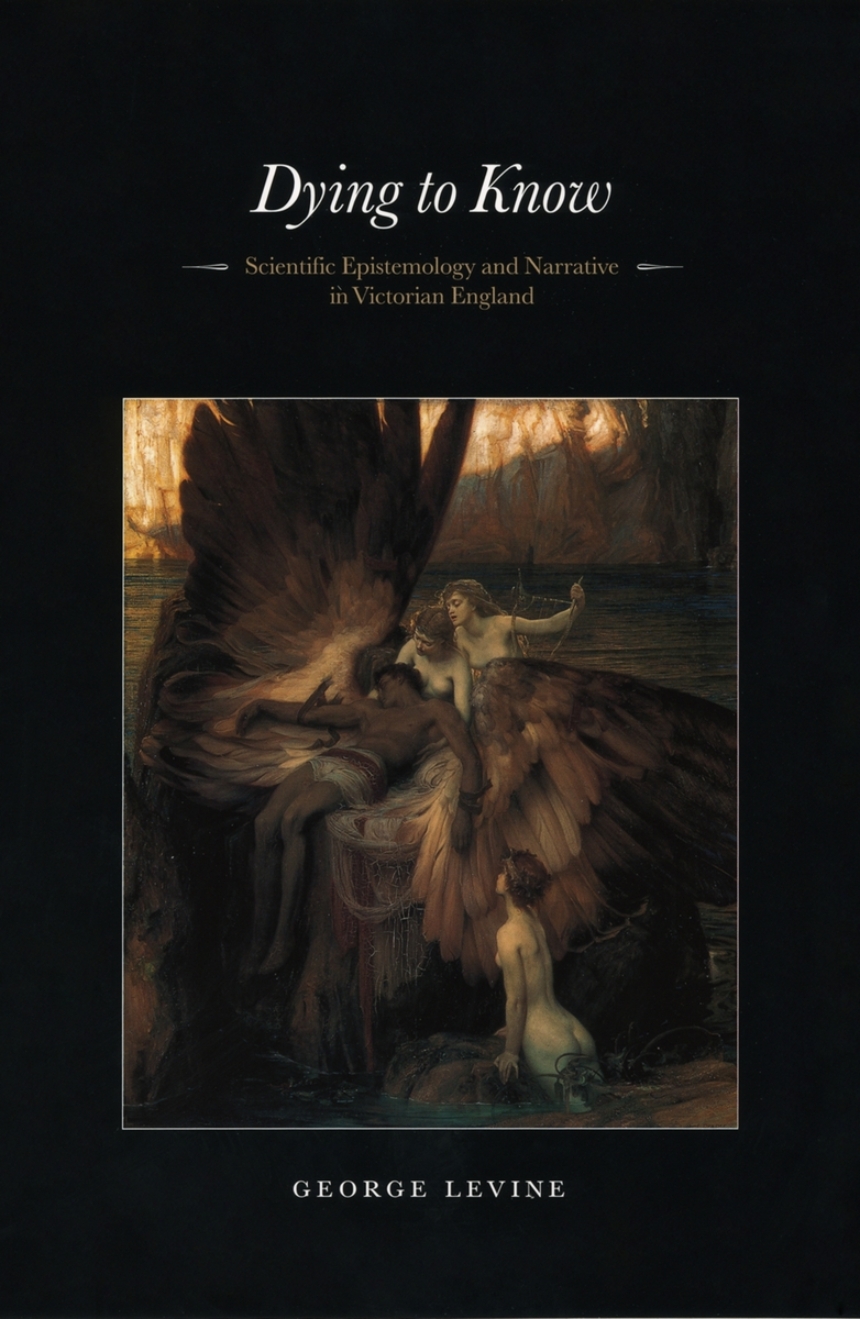Dying to Know
Scientific Epistemology and Narrative in Victorian England
"Dying to Know is the work of a distinguished scholar, at the peak of his powers, who is intimately familiar with his materials, and whose knowledge of Victorian fiction and scientific thought is remarkable. This elegant and evocative look at the move toward objectivity first pioneered by Descartes sheds new light on some old and still perplexing problems in modern science." Bernard Lightman, York University, Canada
In Dying to Know, eminent critic George Levine makes a landmark contribution to the history and theory of scientific knowledge. This long-awaited book explores the paradoxes of our modern ideal of objectivity, in particular its emphasis on the impersonality and disinterestedness of truth. How, asks Levine, did this idea of selfless knowledge come to be established and moralized in the nineteenth century?
Levine shows that for nineteenth-century scientists, novelists, poets, and philosophers, access to the truth depended on conditions of such profound self-abnegation that pursuit of it might be taken as tantamount to the pursuit of death. The Victorians, he argues, were dying to know in the sense that they could imagine achieving pure knowledge only in a condition where the body ceases to make its claims: to achieve enlightenment, virtue, and salvation, one must die.
Dying to Know is ultimately a study of this moral ideal of epistemology. But it is also something much more: a spirited defense of the difficult pursuit of objectivity, the ethical significance of sacrifice, and the importance of finding a shareable form of knowledge.
In Dying to Know, eminent critic George Levine makes a landmark contribution to the history and theory of scientific knowledge. This long-awaited book explores the paradoxes of our modern ideal of objectivity, in particular its emphasis on the impersonality and disinterestedness of truth. How, asks Levine, did this idea of selfless knowledge come to be established and moralized in the nineteenth century?
Levine shows that for nineteenth-century scientists, novelists, poets, and philosophers, access to the truth depended on conditions of such profound self-abnegation that pursuit of it might be taken as tantamount to the pursuit of death. The Victorians, he argues, were dying to know in the sense that they could imagine achieving pure knowledge only in a condition where the body ceases to make its claims: to achieve enlightenment, virtue, and salvation, one must die.
Dying to Know is ultimately a study of this moral ideal of epistemology. But it is also something much more: a spirited defense of the difficult pursuit of objectivity, the ethical significance of sacrifice, and the importance of finding a shareable form of knowledge.
320 pages | 1 halftone | 6 x 9 | © 2002
Literature and Literary Criticism: British and Irish Literature
Table of Contents
Acknowledgments
Introduction: Dying to Know
1. The Narrative of Scientific Epistemology
2. Dying to Know Descartes
3. Carlyle, Descartes, and Objectivity: Lessen Thy Denominator
4. Autobiography As Epistemology: The Effacement of Self
5. My Life As a Machine: Francis Galton, with Some Reflections on A. R. Wallace
6. Self-Effacement Revisited: Women and Scientific Autobiography
7. The Test of Truth: Our Mutual Friend
8. Daniel Deronda: A New Epistemology
9. The Cartesian Hardy: I Think, Therefore I’m Doomed
10. Daring to Know: Karl Pearson and the Romance of Science
11. The Epistemology of Science and Art: Pearson and Pater
Epilogue: Objectivity and Altruism
Notes
Index
Introduction: Dying to Know
1. The Narrative of Scientific Epistemology
2. Dying to Know Descartes
3. Carlyle, Descartes, and Objectivity: Lessen Thy Denominator
4. Autobiography As Epistemology: The Effacement of Self
5. My Life As a Machine: Francis Galton, with Some Reflections on A. R. Wallace
6. Self-Effacement Revisited: Women and Scientific Autobiography
7. The Test of Truth: Our Mutual Friend
8. Daniel Deronda: A New Epistemology
9. The Cartesian Hardy: I Think, Therefore I’m Doomed
10. Daring to Know: Karl Pearson and the Romance of Science
11. The Epistemology of Science and Art: Pearson and Pater
Epilogue: Objectivity and Altruism
Notes
Index
